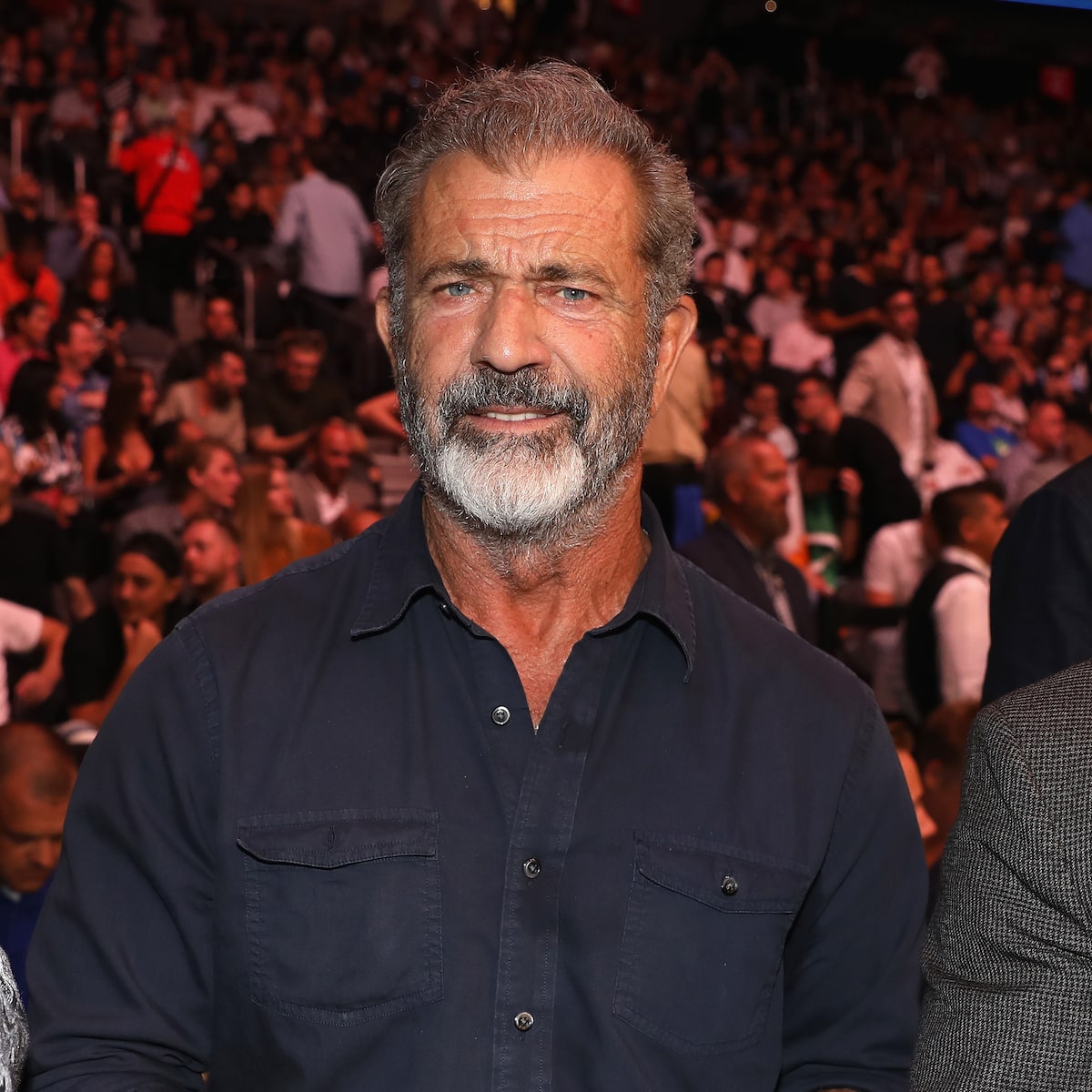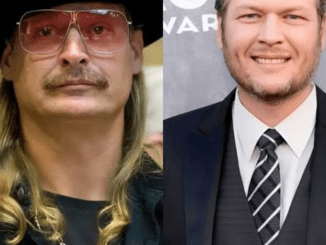Mel Gibson Speaks Out on Oprah’s Secret Agenda
In a world where celebrities are often scrutinized for their personal and professional lives, Mel Gibson, the Oscar-winning director, actor, and producer, has never been shy about speaking his mind.
Recently, Gibson opened up on what many have speculated for years: the secret agenda behind Oprah Winfrey’s show, one of the most successful talk shows in television history.
His comments have sparked a flurry of reactions from both his fans and critics alike, adding to the ongoing narrative surrounding Oprah’s influential power in the entertainment industry.
The Background: A Glimpse into Mel Gibson’s Career
Mel Gibson rose to fame in the 1980s, quickly becoming one of Hollywood’s biggest stars. Known for his roles in iconic films such as Lethal Weapon and Braveheart, Gibson made his mark as both a versatile actor and a visionary director.
However, his career has not been without controversy. Over the years, Gibson’s personal life, including his publicized struggles with addiction and multiple scandals, has overshadowed his professional achievements.

Oprah Winfrey, on the other hand, has long been regarded as the queen of talk shows. Her show, The Oprah Winfrey Show, which aired for 25 years, became a cultural phenomenon, tackling a wide range of topics from celebrity interviews to in-depth discussions about life, love, and spirituality.
Winfrey has been widely credited with influencing public opinion and shaping the media landscape, with her personal brand becoming synonymous with empowerment and success.
Despite their seemingly different paths in the entertainment world, Gibson and Winfrey’s paths have crossed in various ways over the years.
Gibson has appeared on Oprah’s show several times, with the most notable instance being a 2006 interview where the actor discussed his public downfall after making anti-Semitic remarks. It was during this time that rumors about Oprah’s hidden agenda began to take shape.
Mel Gibson’s Controversial Claims
In a recent interview, Mel Gibson spoke candidly about his thoughts on Oprah Winfrey’s intentions, asserting that there was much more to her show than just celebrity interviews and self-help messages.
According to Gibson, Oprah’s show was part of a larger, more strategic operation designed to push certain ideological and political agendas under the guise of entertainment.

“I’ve always known that Oprah’s show wasn’t just about making people feel good,” Gibson said during the interview. “There’s a lot more at play here.
She’s a very powerful woman, and she knows exactly what she’s doing. It’s not just about Oprah and her brand; it’s about influencing the masses and shaping their worldview. That’s the real secret agenda.”
Gibson’s comments have raised eyebrows for several reasons. First, his remarks suggest that Oprah’s carefully curated image as a philanthropist and spiritual guide may not be as transparent as the public has been led to believe.
Second, it shines a light on the hidden power structures within the entertainment industry that influence the way audiences perceive certain issues.
While Gibson did not go into specific detail about what he believes Oprah’s agenda to be, his statement implies that the talk show mogul has used her platform to push an agenda that is not always in line with mainstream values.
He further insinuated that Oprah’s personal beliefs may have shaped the direction of her show in ways that align with her political and social views.
Oprah Winfrey’s Response
As expected, Oprah Winfrey has yet to publicly respond to Gibson’s claims. However, her representatives have expressed concern about the negative publicity surrounding Gibson’s comments, particularly given the public’s perception of him as a controversial figure.
Winfrey has long been an advocate for social justice, equality, and empowering marginalized communities, and her show has often focused on these themes.

Many have speculated that Winfrey’s own personal beliefs and political inclinations may have played a role in the topics covered on her show.
For instance, her interviews with prominent figures in the political world, such as former President Barack Obama, have been seen by some as an endorsement of certain political ideologies.
Others have praised her for using her platform to address important social issues, including racism, gender inequality, and mental health.
Despite the speculation, Winfrey’s fans have consistently defended her, stating that her genuine desire to connect with people and share uplifting stories is what has made her such a beloved figure.
Winfrey herself has often emphasized her commitment to authenticity and empathy, claiming that her show was never intended to push any particular agenda but rather to serve as a platform for meaningful dialogue.
The Power of the Media: A Closer Look at Oprah’s Influence
Oprah’s influence over the years cannot be overstated. Her media empire has expanded far beyond her talk show, with ventures into magazines, television networks, and even the world of publishing.
In many ways, Oprah has become a brand unto herself, shaping public perceptions on a wide range of topics from spirituality to politics.
This level of influence is exactly what Mel Gibson seems to be calling into question. He suggests that Oprah’s success is not just due to her charisma and ability to connect with people, but also because of the underlying power structures that she is part of.

According to Gibson, the entertainment industry as a whole is driven by these power dynamics, with celebrities like Oprah and others shaping public opinion in subtle yet profound ways.
It’s not just about celebrity interviews or feel-good stories, Gibson argues; it’s about control over the narrative. And in that narrative, he believes there are certain agendas at play that the public may not fully understand.
Gibson’s comments tap into a larger conversation about the role of media in shaping societal values and perceptions, especially when it comes to issues like politics, social justice, and corporate interests.
The Role of Hollywood Elites in Shaping Public Opinion
Gibson’s remarks also bring attention to the role of Hollywood elites in shaping public opinion.
The entertainment industry has long been seen as a powerful force in influencing the masses, with celebrities using their platforms to endorse political candidates, social movements, and even corporate brands.
In many cases, these endorsements can have a significant impact on public opinion, especially in a world where celebrity culture is so deeply ingrained in our daily lives.
However, as Gibson suggests, there may be darker forces at play within Hollywood that go beyond just personal endorsements. These hidden agendas may be influencing the way media is produced, consumed, and even interpreted.

Whether it’s through subtle messaging in television shows and movies or through the public statements of influential figures like Oprah, the power of the media is undeniable.
Conclusion: A Larger Conversation About Media and Influence
Mel Gibson’s recent comments about Oprah Winfrey’s secret agenda have sparked a much-needed conversation about the power of the media and the influence of celebrity culture.
While his claims have certainly raised eyebrows, they also serve as a reminder that the entertainment industry is not as transparent as it may seem.
As consumers of media, it’s important to recognize the forces at work behind the scenes and consider how these influences shape our perceptions of the world around us.
Whether it’s Oprah’s carefully crafted brand or Mel Gibson’s candid remarks, the conversation about media influence is far from over.
As society continues to grapple with the role of media in shaping our beliefs and values, we can only hope that a deeper understanding of these issues will emerge.
In the end, it’s not just about Oprah or Mel Gibson; it’s about the larger questions of power, influence, and control in the media landscape, and how these forces affect the way we see the world. The conversation, it seems, is just beginning.


